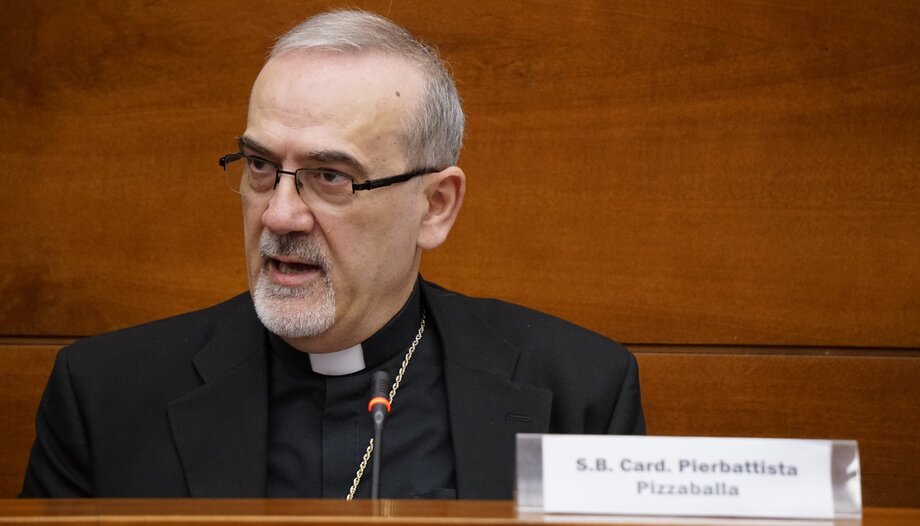On the day after taking possession of the titularity of the parish of Sant'Onofrio in Rome, Cardinal Pierbattista Pizzaballa, Latin Patriarch of Jerusalemwas invited to deliver a Lectio magistralis at the Pontifical Lateran UniversityThe event was part of the cycle of studies in Peace Sciences and International Cooperation of the Redemptor Hominis Pastoral Institute.
An unprecedented tragedy
From the first lines of his speech there was a cry of pain and a call for peace in the face of the tragic situation tearing the Holy Land apart. "What is happening is an unprecedented tragedy," he began. "To the gravity of the military and political context, which is getting worse and worse, is added the deterioration of the religious and social context. A desolating panorama."
In the face of this profound crisis, in which even the few contexts of interreligious coexistence are disintegrating, the Patriarch called on the Church to reaffirm its action for peace on two fundamental evangelical pillars.
Looking into the face of God
The first is "to look upon the face of God", since peace, before being a human project, "is a gift of God, indeed, it says something about God himself". Citing Paul VI's famous address to the United Nations on October 4, 1965, Pizzaballa reiterated that "the edifice of modern civilization must be supported by spiritual principles, capable not only of sustaining it, but of enlightening and animating it. And for these indispensable principles to be such, they cannot but be founded on faith in God".
Looking at each other's faces
The second pillar is "looking at the face of the other". As the Patriarch explained, "peace, even at the anthropological level, is not only a social convention or the absence of war, but is based on the truth of the human person". Only in the context of integral human development and respect for human rights "can a true culture of peace be born." Referring to the philosopher Lévinas, he insisted that "in the face of the Other, the absolute is at stake" and that "the world is mine to the extent that I can share it with the Other".
Faced with the worsening of the situation and the inertia of international institutions, "increasingly weak" and impotent, the Patriarch also highlighted the lack of local leadership capable of making gestures of trust and of making "courageous choices for peace". However, he warned the Church and all pastoral actors at different levels not to yield to the "temptation to fill the vacuum left by politics" by entering into negotiation dynamics that do not belong to it.
The only reference is the Gospel
The task of the Church, he strongly reiterated, is "to continue to be herself, a community of faith" whose only "reference is the Gospel". Its mission is "to create in the community the desire, the disposition and the sincere commitment to meet the other, knowing how to love in spite of everything". A path that passes through "listening to the Word of God" and witnessing to the paschal mystery of Christ, "the only one who has broken down the barrier between men, the wall of enmity".









